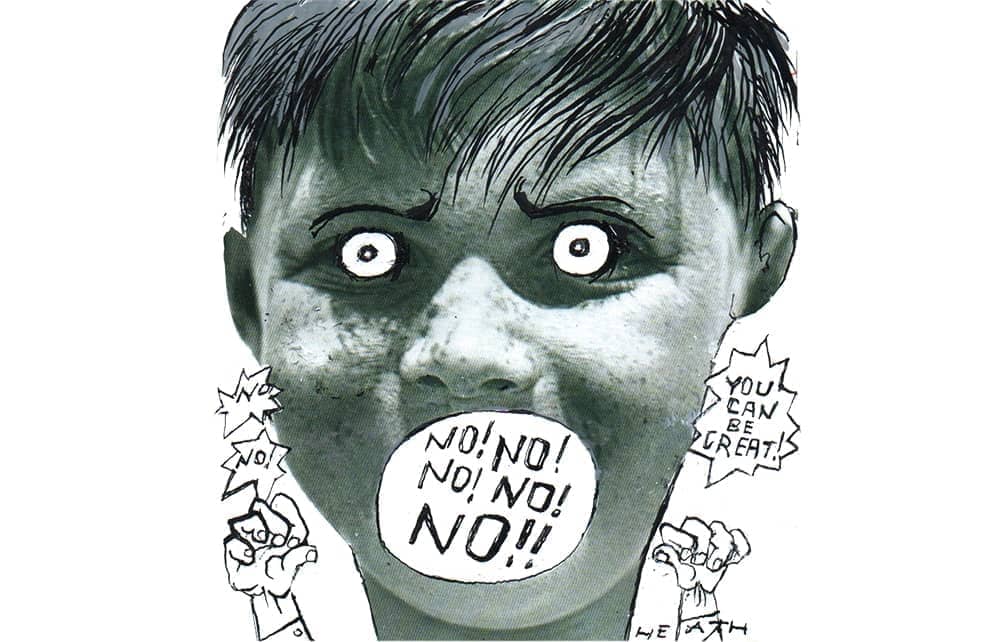‘We don’t need another hero,’ sang Tina Turner back in the sexy-greedy 1980s. How times have changed. These days we have Superheroes Are Everywhere, a children’s book written by the Vice-President of the USA, Kamala Harris. Puffs tell us that ‘the book teaches that superheroes can be found everywhere in real life, from family members, to friends, to teachers at school and college’ and that it is an ‘encouraging, uplifting book [which] inspires kids to recognise the super-heroes all around them and promise to be, like them, brave, kind, helpful, and more’. Those little darlings between two and five who have ADHD – as so many bourgeois children mysteriously appear to – can swerve the book and instead attend a ‘Superhero Training Course’ run by the Little Hero Company in a church in Dulwich for ‘an imaginative, energetic and action-packed 45-minute class, where your Little Heroes can indulge in whoever they want to be, from Spider-Man to Elsa from Frozen’.
If your children are older and still acting up, you might want to send them to a shrink who specialises in ‘Superheroes and Pop Culture in Therapy for Children and Adolescents’. ‘Imagine if kids had superpowers to help them overcome their mental health issues. What would their superpowers be? Like many children, our best-known superheroes are often impacted by abuse, divorce, loss, isolation, anger and their accompanying mental health challenges. And like many superheroes, kids who struggle with psychological issues can often harness incredible inner strength.’
What’s the good in going on about superheroes when we’re bringing children up to be ninnies?
Finally shipped them off to college, but they’re still finding life hard, and seeking comfort in the myths of their youth? No worries; just let them transfer to Roger Williams University in Rhode Island, USA, where they can be wet-nursed through the awful business of coming to maturity in the most affluent and free country the world has ever known by seeing it through the eyes of superheroes: ‘Many topics that dominate the conversations in modern society – race, feminism, immigration, gender and sexuality, politics, religion, and more – can be daunting to students who may not know how to engage in discussions about these topics.








Comments
Join the debate for just £1 a month
Be part of the conversation with other Spectator readers by getting your first three months for £3.
UNLOCK ACCESS Just £1 a monthAlready a subscriber? Log in